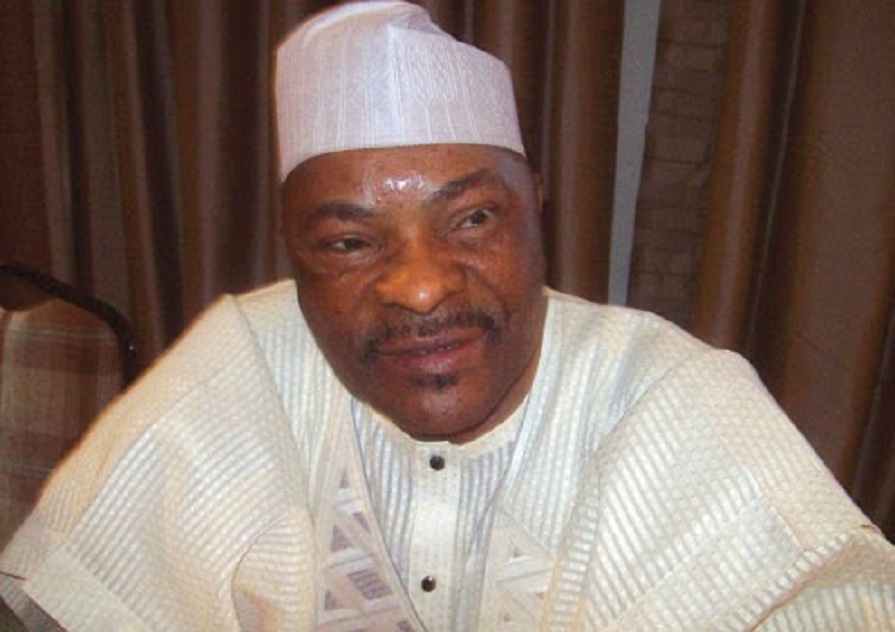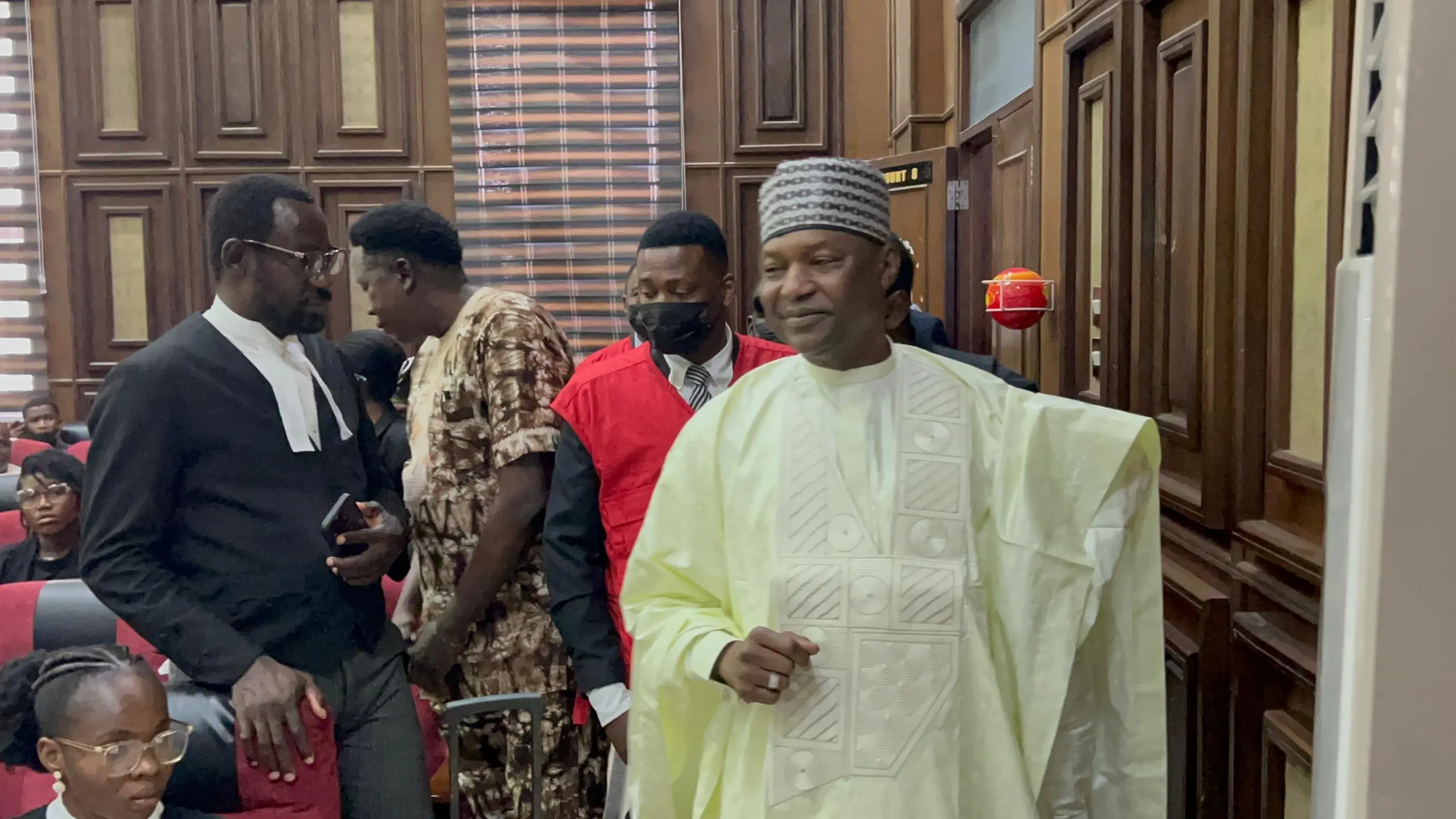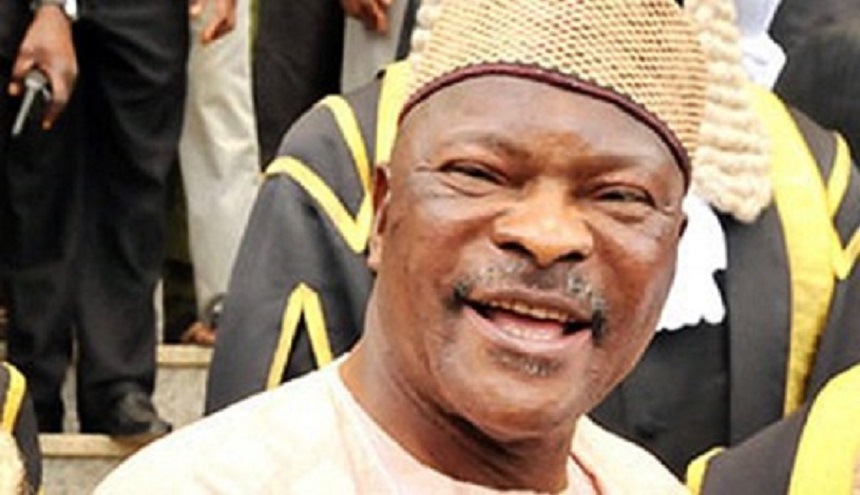General
Kogi Guber 2019: Imposition by Ex-Governor Brews Fresh Crisis in PDP

A major crisis is brewing in the Kogi State chapter of the Peoples’ Democratic Party (PDP) as concerned members are mobilizing to protest the moves by an ex-governor in the state, Mr Ibrahim Idris, to impose his son, Abubakar, as the party’s candidate in the state’s governorship election slated for November.
Mr Abubakar Idris declared his intention to run for the office once occupied by his father last year but it is the manner in which the party leadership in the state is being forced into adopting the ex-governor’s son that is setting the stage for a major confrontation.
PDP members in the state, still smarting from the mismanagement of the nomination process in the 2019 general elections across the state are raising alarm, warning that any attempt to impose another candidate in the coming governorship election would backfire.
Party stalwarts who spoke with our reporter on condition that they are not named accused the ex-governor of killing the PDP in Kogi State, while in office, pointing out that all the poor foundation he laid contributed to the party’s poor outing in 2015.
Some of them stated that towards the end of his second tenure, Idris popularly called ‘Ibro’ was seen extorting money from those vying to succeed him with a promise of allotting them the governorship slot, adding that he has already started playing the same game now, promising the deputy governor’s slot to those who can pay.
“Ibro as usual, has turned the deputy governorship slot into a money-making machine. The same way he did in 2010 over the governorship slot.
“Politicians are currently trooping in and out of his Abuja residence in their bid to lobby for the number two post. Ibro on the other hand is said to be smiling to the bank on daily basis as those he has approached for the slot are responding with bank alert,” one party stalwart, said.
The stalwarts revealed that one of the ex-governor’s plan to foist his son on the party is in the exorbitant nomination fee, which they said is already driving many good potential candidates out of the PDP into other parties.
“In the last two weeks, they have asked aspirants to pay the sum of N75 million as nomination form fee without giving any genuine reasons why aspirants are being asked to pay such ridiculous amount,” one aggrieved member told us.
According to them, the strategy is similar to the one used during the NASS/presidential election when high nomination fees were used to push our potentially good candidates in favour of Senator Attai Aidoko was later fielded.
They, however, warned that if Ibro is not checked by the national leadership of the party, PDP will fail woefully in its mandate to produce the next governor of the state, and that the error will also mark the exit of the party from the state polity.
The party stalwarts lamented that fact that a man whose records during his nine years in office can only be described as disastrous, would be allowed to dictate who would be the party’s flagbearer in the upcoming election.
How could Ibro’s son, they queried, with neither the competence, experience, a genuine manifesto, or broad appeal amongst party faithful, be expected to deliver electoral victory in November.
The ex-governor was equally accused of losing touch with reality in Kogi, pointing out that his recent interview, where he said that he had no idea of the prevailing hardship in the state, as evidence that neither he nor his son had anything good to offer.
They queried how any dynasty built by a man who is oblivious of the misery that poor leadership is producing in the state can be good for Kogites, pointing out that it was better for the PDP to realise the error of allowing am like Ibro to select a governorship candidate for the party, in order to save it from obvious defeat in November.
The party men said the way out of the defeat staring PDP in in the face was to allow the party run the selection process according to laid-down rules and regulations, rather than allow an ex-governor, who failed in his time, to impose his son.
Ibro’s tenure, it was further pointed out, enjoyed one of the economically healthiest moments of the country, with the price of oil relatively high, internally-generated revenue in the state receiving as much as 150 percent boost, but Kogi under his watch failed miserably to record any meaningful development.’
He was also accused of siphoning Kogi’s funds to build businesses for himself, family and cronies, and that his hotels spread across Abuja, Lagos and Dubai are mostly the proceeds from crime committed against the state.
General
NISO Attributes Electricity Woes to Inadequate Gas Supply

By Adedapo Adesanya
The Nigerian Independent System Operator (NISO) has attributed the poor power supply facing a considerable number of Nigerians to inadequate gas supply to thermal power plants.
Business Post reports that epileptic power supply has plagued consumers in Lagos, Oyo, Abuja, and Osun, among others, this month, leading to worries. Also, some businesses have recorded losses due to the epileptic power supply in their areas.
In a statement posted on its X handle, NISO disclosed that average available generation on the national grid currently stands at about 4,300 megawatts (MW), with the low output primarily attributed to gas supply constraints.
The system operator noted that thermal power plants, which account for the dominant share of Nigeria’s electricity generation mix, require an estimated 1,629.75 million standard cubic feet (MMSCF) of gas per day to operate at optimal capacity. However, as of February 23, 2026, actual gas supply to the plants was approximately 692.00 MMSCF per day.
The available supply represents less than 43 per cent of the daily gas requirement, resulting in constrained generation output and reduced electricity allocation to Distribution Companies (DisCos).
NISO, which independently manages the nation’s electricity grid, explained that any disruption or limitation in gas supply directly affects available generation capacity and overall grid output, given the heavy reliance on thermal plants.
It added that when total system generation drops significantly, the operator is compelled to implement load shedding across the network while dispatching available energy in line with allocation percentages approved under the Multi-Year Tariff Order (MYTO) framework of the Nigerian Electricity Regulatory Commission (NERC), to maintain grid stability and prevent system disturbances.
While expressing regret over the inconvenience to electricity consumers and market participants, NISO said it is working closely with relevant stakeholders to restore full energy allocation once gas supply improves and generation capacity returns to normal levels.
General
EFCC Re-Arraigns ex-AGF Malami, Wife, Son Over Alleged Money Laundering

By Adedapo Adesanya
The Economic and Financial Crimes Commission (EFCC) has re-arraigned former Attorney-General of the Federation (AGF), Mr Abubakar Malami (SAN), his wife, Mrs Asabe Bashir, and son, Mr Abdulaziz Malami, on money laundering charges.
They were brought before Justice Joyce Abdulmalik of the Federal High Court in Abuja, following the re-assignment of the case to the new trial judge.
Upon resumed hearing, EFCC’s lawyer, Mr Jibrin Okutepa (SAN), informed the court that the matter was scheduled for defendants’ re-arraignment.
“The matter is coming before your lordship this morning for the very first time. I will be applying for the plea of the defendants to be taken,” he said.
Mr Okutepa equally applied that the sums listed in Counts 11 and 12 be corrected to read N325 million instead of N325 billion for Count 11, and N120 million instead of N120 billion for Count 12.
When it was not opposed by the defence lawyer, Mr Joseph Daudu (SAN), Justice Abdulmalik granted the oral application by Mr Okutepa.
The defendants, however, pleaded not guilty to the 16 counts preferred against them by the anti-graft agency bordering on money laundering.
Justice Obiora Egwuatu had, on February 12, withdrawn from the case shortly after the civil case filed by the EFCC was brought to him.
The case was formerly before Justice Emeka Nwite, who sat as a vacation judge during the Christmas/New Year break.
After the vacation period, the CJ reassigned the cases to Justice Egwuatu, who had now recused himself, before it was reassigned to Justice Abdulmalik.
The former AGF, his wife, and son were earlier arraigned before Justice Nwite on December 30, 2025.
While Malami and his son were remanded at Kuje Correctional Centre, Asabe was remanded at Suleja Correctional Centre before they were admitted to N500 million bail each, on January 7, with two sureties each in the like sum.
General
INEC Shifts 2027 Presidential, N’Assembly Elections to January 16

By Adedapo Adesanya
Nigeria will hold next year’s presidential and National Assembly elections a month earlier than planned, after the Independent National Electoral Commission (INEC) revised the polling schedule.
The elections will be held on January 16, instead of the previously announced date of February 20, INEC said in an X post, signed by Mr Mohammed Kudu Haruna, National Commissioner and Chairman, Information and Voter Education Committee.
There were also changes to the Governorship and State Houses of Assembly elections initially fixed for Saturday, March 6 2027, in line with the Electoral Act, 2022, have now been moved to Saturday, February 6, 2027.
The electoral commission said the changes were caused by the enactment of the Electoral Act, 2026 and the repeal of the Electoral Act, 2022, which introduced adjustments to statutory timelines governing pre-election and electoral activities.
“The Commission reviewed and realigned the schedule to ensure compliance with the new legal framework,” it said.
INEC said party primaries (including resolution of disputes) will commence on April 23, 2026 and end on May 30, 2026, after which Presidential and National Assembly campaigns will begin on August 19, 2026, while Governorship and State Houses of Assembly campaigns will begin on September 9, 2026.
It noted that campaigns will end 24 hours before Election Day, and political parties have been advised to strictly adhere to the timelines.
INEC also stated it will enforce compliance with the law.
The electoral body also rescheduled the Osun Governorship election which was earlier scheduled for Saturday, August 8 2026, by a week to Saturday, August 15, 2026.
INEC noted that some activities regarding the Ekiti and Osun governorship elections have already been conducted, and the remaining activities will be implemented in accordance with the Electoral Act, 2026.
Speaking at a news briefing in Abuja two weeks ago, the chairman of INEC, Mr Joash Amupitan, expressed the readiness of the commission to conduct the polls next year.
The timetable issued by the organisation for the polls at the time came when the federal parliament had yet to transmit the amended electoral bill to President Bola Tinubu for assent.
Later that week, the Senate passed the electoral bill, reducing the notice of elections from 360 days to 180 days, while the transmission of results was mandated with a proviso.
-

 Feature/OPED6 years ago
Feature/OPED6 years agoDavos was Different this year
-
Travel/Tourism10 years ago
Lagos Seals Western Lodge Hotel In Ikorodu
-

 Showbiz3 years ago
Showbiz3 years agoEstranged Lover Releases Videos of Empress Njamah Bathing
-

 Banking8 years ago
Banking8 years agoSort Codes of GTBank Branches in Nigeria
-

 Economy3 years ago
Economy3 years agoSubsidy Removal: CNG at N130 Per Litre Cheaper Than Petrol—IPMAN
-

 Banking3 years ago
Banking3 years agoSort Codes of UBA Branches in Nigeria
-

 Banking3 years ago
Banking3 years agoFirst Bank Announces Planned Downtime
-

 Sports3 years ago
Sports3 years agoHighest Paid Nigerian Footballer – How Much Do Nigerian Footballers Earn















